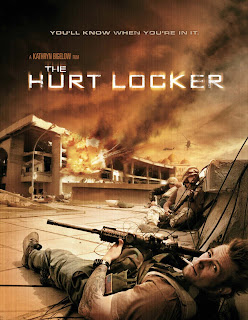
"The fury of battle results in a strong and deadly addiction, because the war is a drug." And like all drugs changes with the changing times. The contemporary world has given us the Great War, stressful and disruptive as a dose of heroin. Then the Second World War, overdose crack destined to leave indelible marks. Korea and Vietnam had to be quick puffs of hashish, lysergic tramutatesi in crazy dancing. Now there's Afghanistan and Iraq, the time for a drink of whiskey and a shot from ketamine. The invasion process is mirrored in the distortion of reality. And his interpretation. The eye is shattered. It crystallizes and squeaks under gunfire. Remain individualistic ethics, the need for action, the denial of the community of so many soiled heroes battles engulf and regurgitated in a hurry.

I knew a teacher like Robert Aldrich . It's great review today Too Late the Hero ( Not Too Late the Hero ), 1970. One of those films exciting, vigorous, robust. With a five-star cast (Cliff Robertson, Henry Fonda, Ian Bannen, a titanic Michael Caine) and directed that from the initial sequences (flags Japanese, English and American torn by the wind and the passage of time) make the chills. The dirty dozen is always, indeed, in this case is damn gears. In an island of the Hebrides, in front of the Pacific, Yankees not too much more convinced of his role he joined a company of British deserters and drifters to blow up a radio station Nippo. Save your skin will prove difficult undertaking. However, no value or ethics of solidarity that war Aldrich tries. Rather, it reiterates a cynicism around that man is a denial of the association of people and exaltation of purely individual action. The conflict remains as on sfondo, un mistero incomprensibile che unisce gli uomini, che siano americani, inglesi o giapponesi (il maggiore pacato e scaltro). La corsa finale tra il fuoco incrociato dei nemici ed il raggiungimento della status d’eroe («Ha ucciso 15 nemici; anzi 30. Faccia lei») non serve ad altro che a sconfessare l’eroismo. Perché «morire in guerra è cretino e crudele».

Quasi 40 anni dopo, è Kathryn Bigelow la sola ad animare d’azione e riflessione profonda i problemi a stelle e strisce nel Medio Oriente. The Hurt Locker (2008) è meno teorico sul punto di vista rispetto al capolavoro di Brian De Palma Redacted . Reject the commotion, the stubborn search for historical truth, humanism and rhetoric in Paul Haggis' In the Valley of Elah (2007). In Iraq the anthropological Bigelow wear the dramas of our time. The enemies have a face, are not distinguishable. As the lines between reality and representation. We are in disarray, thrown at the forefront of a political confused and indifferent. The only solution for those who are facing is pure action. The U.S. Army squad who defuses bombs profession acts with coolness and clarity of professionals. Behind this there are peel alcohol, confusion of roles, psychological dramas, tensions and difficulties adaptation. Between good and bad there's no distinction. The direction is perfect to combine hard rock and biting of the Ministry and constant voltage, zoom blur and fast hand-held camera, the adrenaline pumping in the choices that cost a life, many lives. War is like a drug, dulls the will of men, it confuses duties and spirit of survival. The style of rough, dry, muscular Bigelow would have loved it to Aldrich. As if to say, to deal with certain psychological mechanisms must be a feeling out of the ordinary.
War. It's a dying business.





